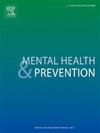Understanding perinatal women’s preferences for mental health apps: A mixed methods study
IF 2.4
Q2 Medicine
引用次数: 0
Abstract
Introduction
Perinatal mental health disorders impact 1 in 5 reproductive-aged women, affecting maternal and child health. Mobile apps may be a method of providing easily accessible mental health support including physical activity. However, understanding perinatal women’s use of current mental health apps and their preferences for apps tailored to their needs is lacking. Therefore, this study seeks to address this gap by investigating women’s preferences and desired features for a mental health app that includes physical activity and prioritizes the needs of perinatal women.
Materials & Methods
This explanatory sequential mixed methods study utilized an online cross-sectional survey (n = 159) and semi-structured interviews (n = 29) with perinatal women. Descriptive statistics were calculated on all demographic and survey variables. Interview data were analyzed using a directed content analysis approach.
Results
In the survey, 78.5 % of participants were interested in downloading mental health apps; however, only 38 % had previously done so, with 10.8 % currently using them. The most popular elements of the app were postpartum education, mood tracking, baby care guidance, and mental health education. The main perceived benefits of a mental health mobile app were mood-boosting and ease of use. Within the interviews, a majority felt that a perinatal mental health mobile app would be beneficial for women during this time period and emphasized a need for accurate and credible information.
Conclusions
Perinatal women desire a mobile app specific to this population. Future app development should include credible information and collaborate with perinatal women and healthcare providers to consider specific health concerns.
了解围产期妇女对心理健康应用程序的偏好:一项混合方法研究
导言:每 5 名育龄妇女中就有 1 名患有围产期精神疾病,影响着母婴健康。手机应用可能是提供便捷的心理健康支持(包括体育活动)的一种方法。然而,目前还缺乏对围产期妇女使用现有心理健康应用程序情况的了解,以及她们对针对其需求量身定制的应用程序的偏好。因此,本研究试图通过调查妇女对包含体育活动并优先考虑围产期妇女需求的心理健康应用程序的偏好和期望功能来弥补这一不足。对所有人口统计学变量和调查变量进行了描述性统计。结果 在调查中,78.5% 的参与者对下载心理健康应用程序感兴趣;但只有 38% 的人以前下载过,10.8% 的人目前正在使用。应用程序中最受欢迎的元素是产后教育、情绪跟踪、婴儿护理指导和心理健康教育。人们认为心理健康移动应用程序的主要好处是促进情绪和易于使用。在访谈中,大多数人认为围产期心理健康移动应用程序对这一时期的妇女有益,并强调需要准确可信的信息。未来的应用程序开发应包括可信的信息,并与围产期妇女和医疗保健提供者合作,以考虑特定的健康问题。
本文章由计算机程序翻译,如有差异,请以英文原文为准。
求助全文
约1分钟内获得全文
求助全文
来源期刊

Mental Health and Prevention
Medicine-Psychiatry and Mental Health
CiteScore
2.10
自引率
0.00%
发文量
22
审稿时长
24 days
 求助内容:
求助内容: 应助结果提醒方式:
应助结果提醒方式:


